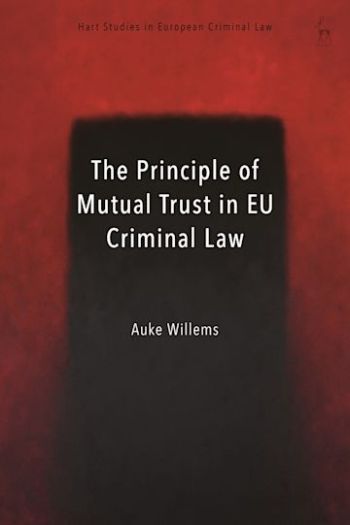
This book develops a conceptual framework of the principle of mutual trust in EU criminal law. Mutual trust is a household term in the EU criminal law vocabulary and is widely regarded to be a prerequisite for a successful application of mutual recognition. But despite its importance, the parameters of the concept are not clear. The book demonstrates that mutual trust is multi-faceted: combining the elements essential to a successful EU criminal law, as part of the Area of Freedom, Security and Justice.
The book approaches trust from multiple angles. First, a study of social science literature. Second, a meticulous assessment of mutual trust in EU criminal law. Third, a study of trust in US interstate criminal justice cooperation. Finally, the book identifies a comprehensive approach to tackle trust related difficulties in EU criminal law.
This timely book will be of great interest to anyone looking to gain a full picture of this core principle in EU criminal law.